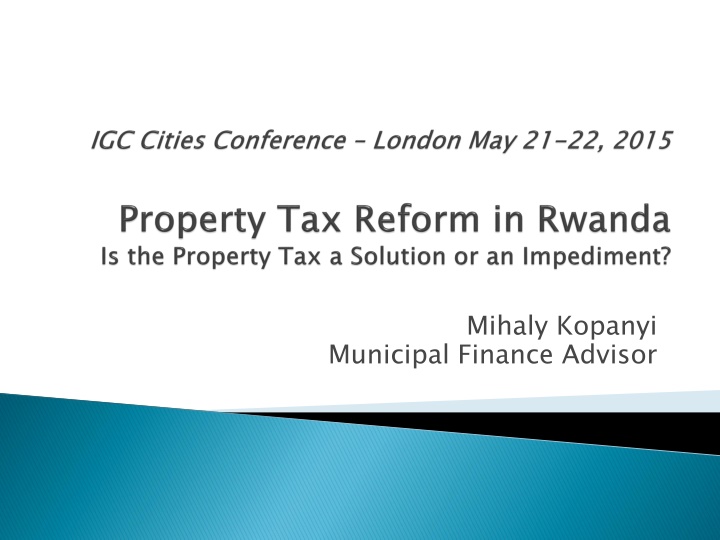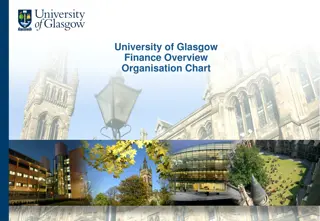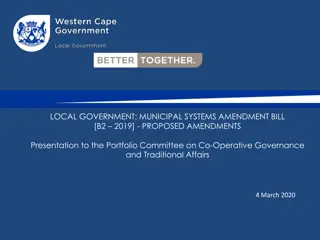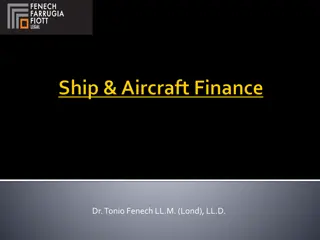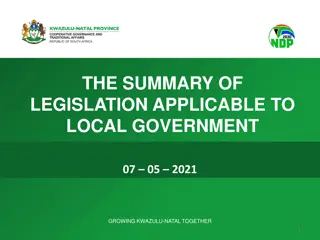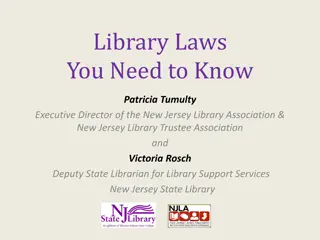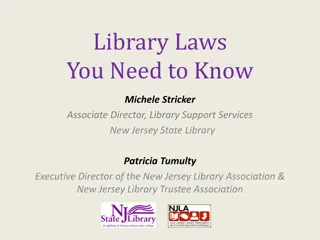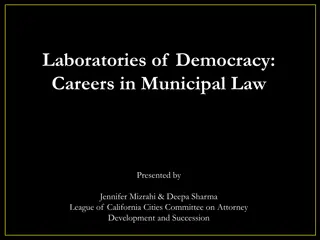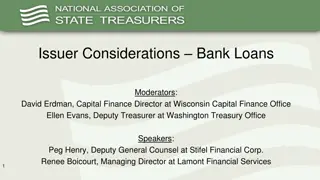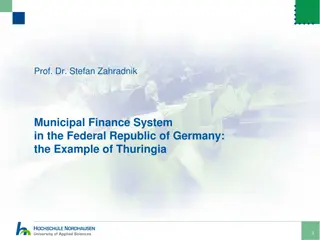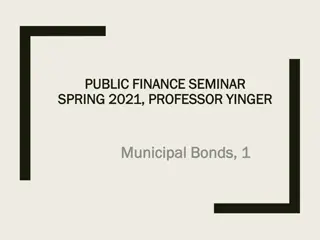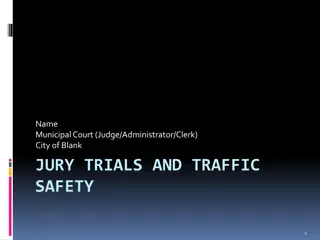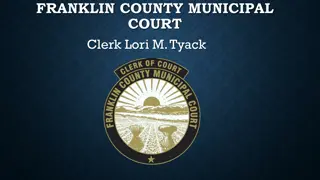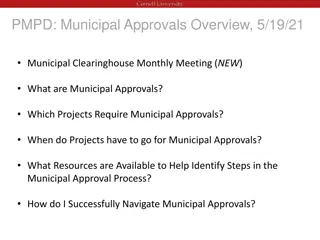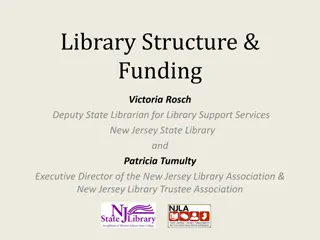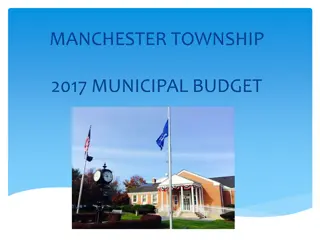Mihaly Kopanyi Municipal Finance Advisor
This content discusses various strategies to improve local tax revenue collection and fairness in Rwanda. Initiatives include increasing local own revenues, implementing value-based property tax systems, and enhancing tax administration efficiency. The focus is on broadening tax bases, increasing tax rates equitably, and improving collection methods to benefit both local governments and taxpayers.
Download Presentation

Please find below an Image/Link to download the presentation.
The content on the website is provided AS IS for your information and personal use only. It may not be sold, licensed, or shared on other websites without obtaining consent from the author.If you encounter any issues during the download, it is possible that the publisher has removed the file from their server.
You are allowed to download the files provided on this website for personal or commercial use, subject to the condition that they are used lawfully. All files are the property of their respective owners.
The content on the website is provided AS IS for your information and personal use only. It may not be sold, licensed, or shared on other websites without obtaining consent from the author.
E N D
Presentation Transcript
Mihaly Kopanyi Municipal Finance Advisor
Own-source revenues (OSR) about 10%; The bulk of transfers are earmarked grants; OSR collection is about 20% of the revenue potential; Narrow property tax base about3% of properties are subject of Fixed Asset Tax; Low tax rate (0.1%); Central government has no funds or intention to increase transfers to local governments;
Increase local own revenues; Tax equitably, improve fairness; Broaden tax base, Increase tax rate; Cost-efficient Central tax administration; Improve collection efficiency;
Rwanda Revenue Authority (RRA) assigned to administer and collect all local taxes; Revenue Software acquired; New Property Tax Law drafted; RRA hired 200 new staff; MoU signed between RRA and Districts (Local Governments);
Value-based property tax with two forms: Value of land and improvement (over RWF40mo value); Area-based tax linked to market value (below 40mo); Elimination of tax exemption of unregistered properties; Individual valuation of properties; Self-valuation and self-reporting by taxpayers, If owners fail to declare or declare false value, RRA must initiate revision; Double the tax rate from 0.1% to 0.2%;
Analysis of alternative tax systems, scenarios, and instruments; Simulation of potential impacts and reaction of taxpayers; Institutional analysis; Key policy issues to decide (e.g. rate after base);
A. Market value-based tax with individual valuation and self-assessment; Shallow market, limited information; Owners know less than experts =>honest mistakes predicted w self-assessment; B. Land-only taxation; Improvements generate property value in urban areas; Fairness (small and big houses pay the same)? C. Hybrid area-based system with GIS and mass-valuation; Works with limited market information; Easy for owners to understand and report; Basis for a future market value based system;
Number of taxpayers (currently 3% of 1.1mo properties pay value-based fixed asset tax); Volume of collectible taxes in scenarios; Increase of tax liability after revaluation and new rate =>Adequate tax rate?; Tax burden vs. family income; THERE ARE DATA! (land office, sales transactions, building permits, household survey) The only assessment The RRA s estimates of expenditure budget based on 5% commission based on previous years tax collection (no tax revenue increase!) [Fiscal Decentralization Strategy paper RRA] The only assessment
RRA present capacities RRA required capacities Administration capacity; Number of expected revisions might be huge (small risk management team), Enforcement procedures and capacities; The role of the Districts/local governments Avoid free ridership; Support decentralization; Support downward accountability;
Change the planned tax system? Replace individual self-valuation and use GIS and CAMA by RRA; Set rate after tax burden is estimated; Set adequate budget for the reform; Plan 4 year transition; Revise the Law (legislate Enforcement, Remedies, role of districts); Incentive mechanisms for collecting more revenues (expand MoU between RRA and LGs);
Made for Kigali city Made for Kigali city MACRO-SIMULATION: Top-down from main macro figures MICRO-SIMULATION: : from sample of typical housing unit Tax potential RWF 10 About three-fold increase of property tax revenues Needed Investment Initial investment: RWF2.3bn US$3.4Mo Investment would recover less than half year! RWF 10- -12billion, US$ 12billion, US$ 15 15- -16mo/ 16mo/yr yr Needed Investment : RWF2.3bn US$3.4Mo Investment would recover less than half year!
